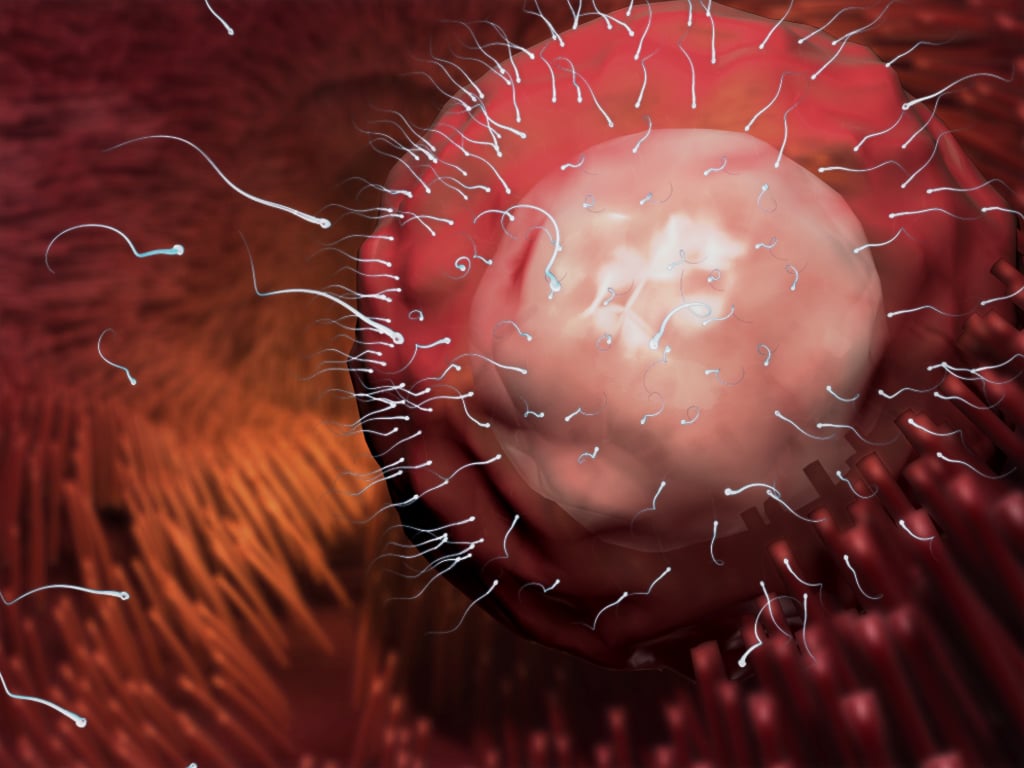
When a sperm fertilizes an egg, a new life begins. This process is known as conception and marks the beginning of baby fertilization development. Over the next nine months, that tiny cluster of cells will grow and develop into a fully-formed baby, ready to enter the world. Here’s a look at what happens during every stage of baby fertilization development.
Table of Contents
Week 1: Conception and Implantation
After the sperm and egg meet, the fertilized egg travels down the fallopian tube and implants itself in the uterus. The fertilized egg then divides into two cells, then four, then eight, and so on, forming a ball of cells called a blastocyst.
Weeks 2-4: Formation of the Placenta and Organs
During this time, the blastocyst continues to divide and forms the placenta, which will provide nutrients and oxygen to the developing baby. The blastocyst also differentiates into three layers of cells, which will eventually become the organs and tissues of the body.
Weeks 5-8: Major Organ Development
By week five, the developing baby is about the size of a grain of rice. During these weeks, major organs like the heart, lungs, and brain begin to form. The baby’s arms, legs, fingers, and toes also begin to develop.
Weeks 9-12: Fetal Movement and Refinement
By week nine, the baby is officially considered a fetus. During these weeks, the baby’s movements become more refined, and the fingers and toes begin to separate. The fetus also begins to produce urine.
Weeks 13-16: Developments in the Nervous System
During weeks 13-16, the baby’s nervous system begins to develop more fully, allowing the baby to begin to hear and make facial expressions. The baby also begins to grow hair.
Weeks 17-20: Growing Hair and Skin and Developing the Digestive System
The baby’s skin becomes more opaque during this time, and eyebrows and eyelashes begin to grow. The digestive system also begins to develop.
Weeks 21-24: Developing the Respiratory System and Immune System
During weeks 21-24, the baby’s respiratory system and immune system begin to develop. The baby also begins to store fat, which will help regulate body temperature after birth.
Weeks 25-28: Eyes Open and Rapid Brain Growth
By week 25, the baby’s eyes open for the first time. During weeks 25-28, the brain undergoes a period of rapid growth, and the baby begins to develop sleep-wake cycles.
Weeks 29-32: Fatter and More Active
During weeks 29-32, the baby becomes fatter and more active, and the lungs continue to develop in preparation for breathing on their own after birth.
Weeks 33-36: Gaining More Weight and Developing Immunities
During weeks 33-36, the baby continues to gain weight and develop immunities from the mother’s antibodies. The baby’s bones also begin to harden.
Weeks 37-40: Ready to Be Born
By week 37, the baby is considered full-term and is ready to be born. The baby’s head may begin to engage in the pelvis, and the amniotic fluid may decrease as the baby prepares to enter the world.
Baby fertilization development is an incredible process that results in the creation of a new life. While the journey from conception to birth may seem long and daunting, every stage of development is a miracle in its own right. If you’re expecting, take comfort in knowing that every day brings your little one closer to joining you in the world.
Frequently Asked Questions
Q: How long does baby fertilization development take?
A: Baby fertilization development takes approximately nine months from conception to birth.
Q: What happens during the first weeks of baby fertilization development?
A: During the first weeks of baby fertilization development, the fertilized egg implants in the uterus and begins to divide into multiple cells.
Q: What organs start to form during weeks five to eight of baby fertilization development?
A: During weeks five to eight of baby fertilization development, major organs like the heart, lungs, and brain begin to form.
Q: When is the baby considered full-term?
A: The baby is considered full-term at 37 weeks.
Q: What happens during the final weeks of baby fertilization development?
A: During the final weeks of baby fertilization development, the baby gains weight, prepares to breathe on its own, and may engage in the pelvis in preparation for birth.
Sources:
https://www.mayoclinic.org/healthy-lifestyle/pregnancy-week-by-week/in-depth/fetal-development/art-20045997
https://www.healthline.com/health/pregnancy/stages-of-pregnancy#week-21-to-birth
https://www.whattoexpect.com/pregnancy/development/week-by-week/
https://www.webmd.com/baby/guide/your-pregnancy-week-by-week-weeks-21-25#1
https://www.babycenter.com/pregnancy/week-by-week/
